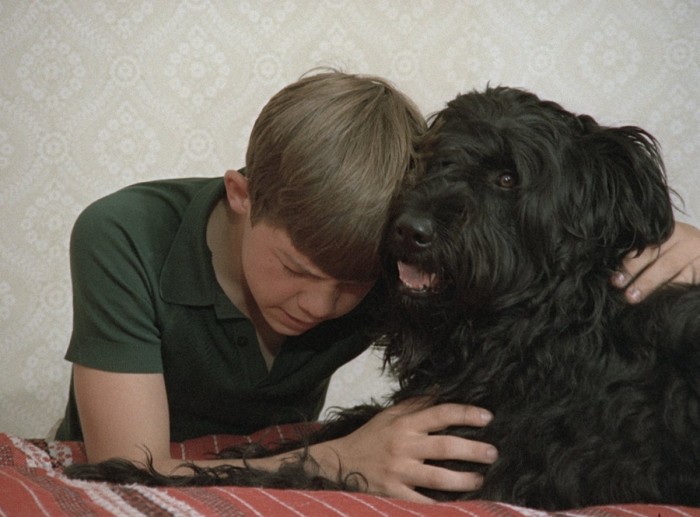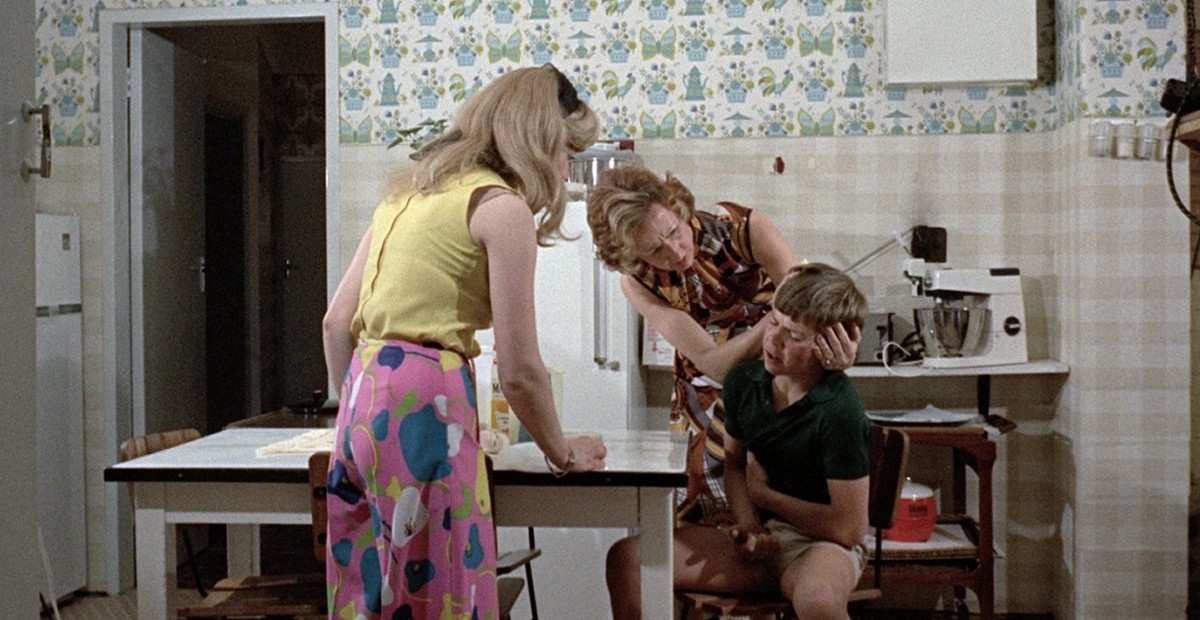By Sharon Calingasan
Director: Tonie van der Merwe
Tonie van der Merwe’s Trompie follows the adventures and misadventures of a young boy and his three friends. Based on a book by Topsy Smith and a popular television series in South Africa in the “˜70s, the recently-restored film version gives viewers a look at the title character’s extraordinary misbehavior and his uncanny ability to reason his way out of his mischievous actions.
The boy Trompie is a typical youngster, except that he has an uncanny gift for conceiving ideas that usually lead to big trouble. Just some of the mishaps he and his friends are involved in include letting a baboon loose, which ends up in a town hall and scaring the women there. Watching these various calamities, viewers can’t help but become agitated with the kid because he seems to be the ever-present leader and facilitator of misfortunes. While young teens are normally naughty, playful and restless, it seems with Trompie that these qualities become doubled or tripled. He has an unusual way of annoying people, be it his classmates, teachers, parents, sister or her suitor, among others. And with the manner in which he orchestrates things, it seems that he is more proud than repentant of what he does.
Director van der Merwe genuinely exposes the many facets of Trompie’s character. We observe his mischievous ways and the sometimes the dark and sadistic side of his nature but, similarly, van der Merwe also shows the good side of Trompie: his genuine bond with his three friends who call him Captain and the fond way he treats animals like the baboon and Boesman, the dog. While the boy’s naughty actions seem to outweigh the good ones, viewers can conclude that this is one regular kid who’s starting to explore the world and test the waters; a teenager with a rich imagination and who shows great promise in becoming an athlete and leader.

The actors who make up the cast are mostly commendable, although there are some who don’t seem to be internalizing their role to the hilt. For one, the actress who plays Trompie’s mother seems always distracted and conscious of the camera. The rest of the cast perform considerably better, with Andre Laubscher’s portrayal of Trompie standing out particularly well. On a technical level, the cinematography is laudable, often capturing the natural beauty of the environment. One especially charming scene is the finale, which sees Trompie escorting Boesman and older companion Safanja on the road. The sunset is beautifully captured in the background, providing a very fitting conclusion to the movie, along with a newfound hope that the disobedient boy is on his way to reformation, thanks in part to Boesman, who brings out the compassionate side of the youngster.
Trompie brings us back in time to gives us a glimpse into the lives of South African youth in the “˜70s. Well-received by locals when it aired domestically, it is a work that, on some level, serves today to reflect these carefree days of youth. In part, the film also functions as a tribute to director Tonie van der Merwe, whose career as a filmmaker in the time of Apartheid was cherished and appreciated by the local populace.
Watch Trompie on FilmDoo.com.








